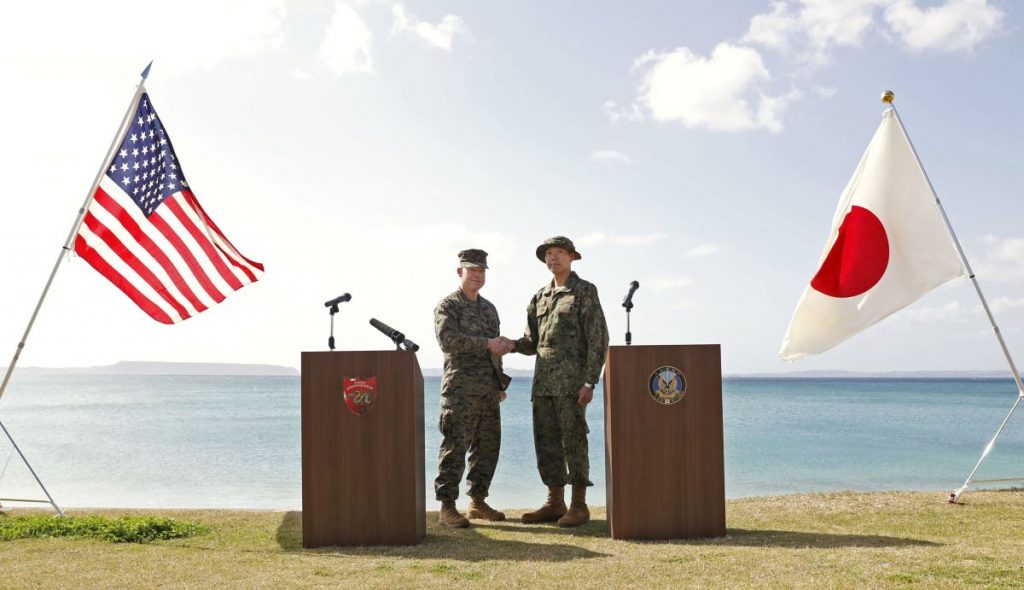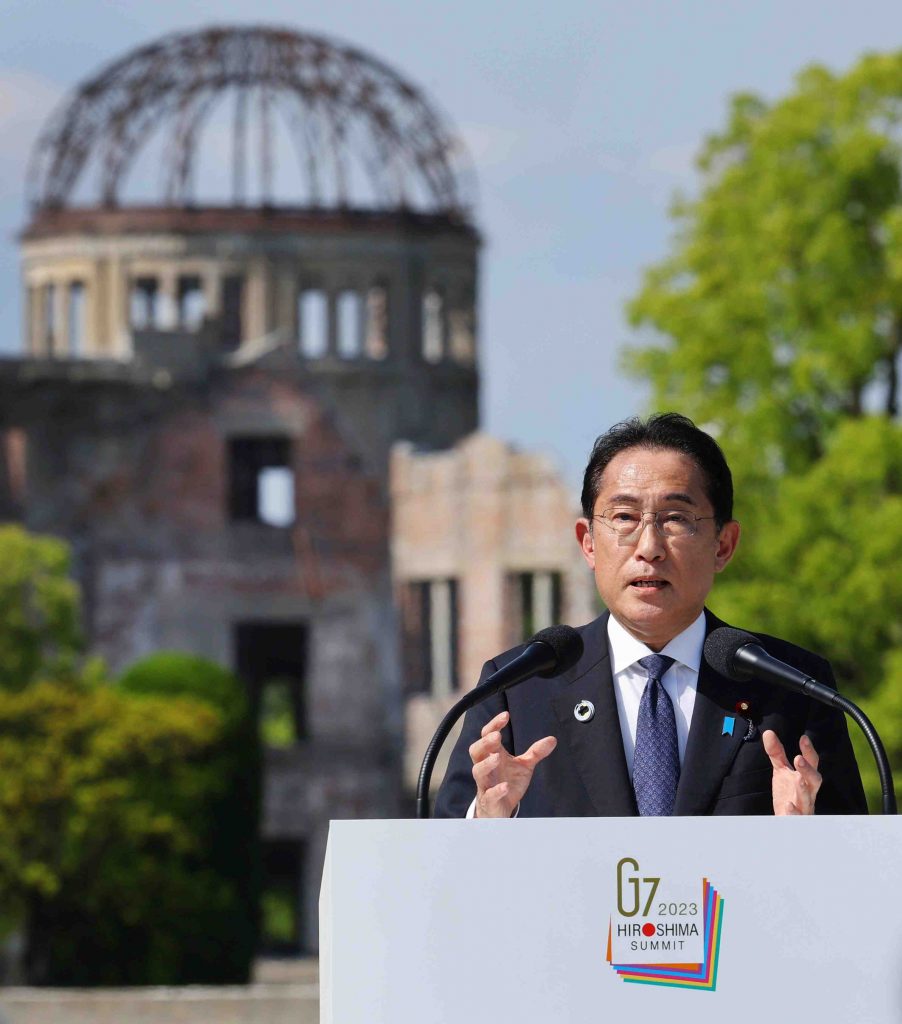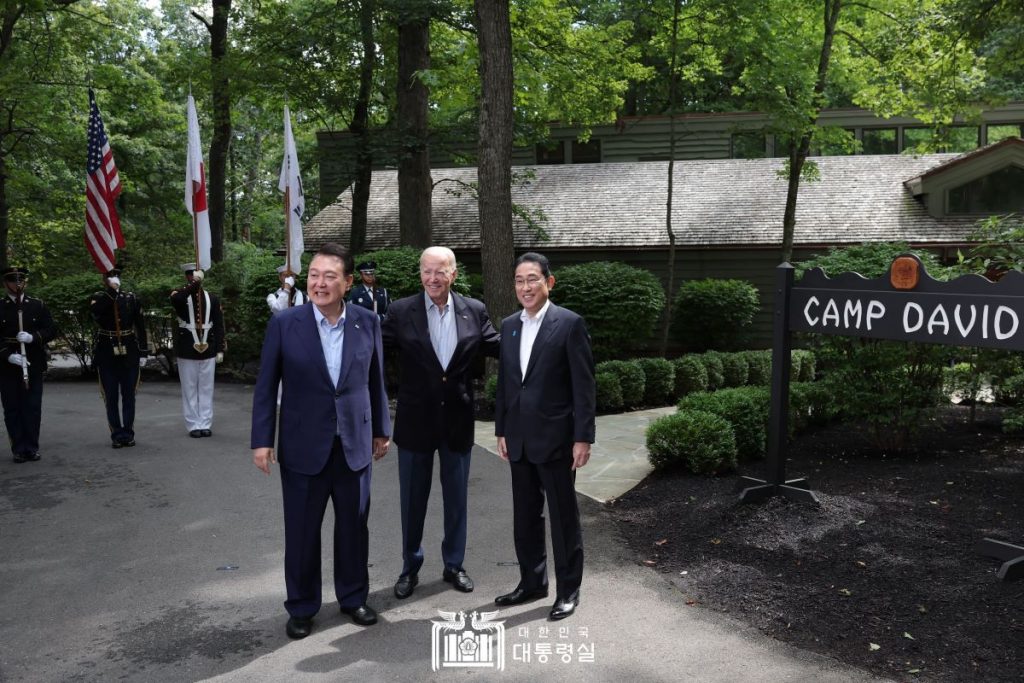Animated and welcoming, Dr Ken Weinstein had just returned from a whirlwind trip to Seoul and Tokyo when we caught him on September 9. Earlier in the morning, he had hosted “Insights from Okinawa: Governor Denny Tamaki on Building a Sustainable United States-Japan Relationship.” That afternoon at the Hudson Institute in Washington, DC, he sat down with The Sankei Shimbun and JAPAN Forwardto share his broader views of the Japan-US relationship.
Pinpointing the giant strides Japan has made in recent years to level the relationship, Dr. Weinstein talked about achievements and priorities. Both Japan and the US have elections coming up, but he emphasized that election outcomes won’t change what is important. In Part 1 of the interview, the Japan Chair and president emeritus of the Hudson Institute focuses on those priorities.
“[W]hoever is chosen as head of the Liberal Democratic Party and as prime minister on September 27 should immediately talk about the critical importance of the US-Japan alliance to Japanese national security [and] to American national security,” he stated at the start. Then he added, “and to recommit to the policies that are set in place by the Three strategic documents that Prime Minister Fumio Kishida and his team have authored.”
Beyond the bilateral relationship, he extolled “the transformation of the alliance into a global partnership.” It is, he said, “a recognition that Japan is more than a regional player. Japan has extraordinary power and sway beyond the Indo-Pacific and [this] bodes well for the future of global cooperation.”
Excerpts follow.
First of two parts

Reaffirming Japanese National Security
What would you recommend to the next LDP leader as the first steps to take in reaffirming the Japan-US relationship?
I think it’s critical that whoever is chosen as head of the LDP on September 27, and as prime minister should immediately talk about the critical importance of the US-Japan alliance to Japanese national security and to American national security. And to recommit to the policies that were set in place by the three strategic documents that Prime Minister Kishida and his team have authored.
I think those three are the most important.
Are there other achievements you would also add?
Certainly, the transformation of Korea-Japan relations is critical as well. And the signature trip he took to Seoul last week was very important. It was a very important sign to his successor that this cooperation has to continue.
[Kishida’s] economic reforms are also very important and will have deepening effects over time. But first and foremost is the defense transformation. It put in place clear standards for industrial security, information security, and stepping up on cybersecurity. All those things are important as part of the broader defense transformation.
They are critical to the US-Japan alliance.
Transforming the Alliance Into a Global Partnership
Are these important beyond Japan?
These relations with the United States are something we have long asked for.
And the key thing is also the transformation of the alliance into a global partnership. It is a recognition that Japan is more than a regional player and that Japan has extraordinary power and sway beyond the Indo-Pacific. [it] is something that bodes well for the future of global cooperation.
The leadership that Prime Minister Kishida showed at the G7 [in Hiroshima] was historic and important. It was a recognition implicitly of the failure of the United Nations system in Ukraine and beyond. The G7 has become all the more important thanks to Prime Minister Kishida.


If the next Japanese leader takes a similar global perspective, should they focus on any particular international groupings?
Japan is embedding itself ever more closely into the Western alliance system, whether it be the reciprocal access agreement with the United Kingdom, the soon-to-be reciprocal access agreement with France, the strategic partnership with India, and obviously the reciprocal access agreement with Australia, which is a critical part of the Indo-Pacific.
So more of these, and Japan’s role within the Asia-Pacific 4 (AP-4) in NATO, are critically important. The more we can be aligned on fundamental policies and defense standards, the better.
We’re at an inflection point in global security where we’re increasingly realizing the dangers of multiple simultaneous contingencies in the Indo-Pacific, in Europe, in the Middle East.
Where do supply chains stand in this picture?
[We must also realize] the dramatic shortfalls that all of us face in terms of munitions and materials. There is a great need for next-generation weaponry. So the more we can work together, the more our industrial bases are aligned, the more that our industrial bases are producing defense equipment, and the more that each region can produce for itself – if supply chains are somehow cut off – the better we will be.
[Therefore, Japan’s] coordination with Western allies that are non-American is incredibly important.
It expands the market for both Japanese defense goods and defense goods from these countries. And it also allows for broader consultation on defense requirements, defense strategy, and the like.
Technology Cooperation and R&D
In April, Japan and the US agreed on a broad array of technology, supply chain, and research & development agreements. Are those parts of what you’re talking about?
Absolutely. Those are critical. We need to get aligned in R&D.
We need to take advantage of Japan’s immense capabilities, whether in quantum, material sciences, AI, [or] advanced manufacturing, that dovetail with our capabilities. The more we can do together and the more we can also prepare Japan for the potential that supply chains could be cut off from the United States and the Indo-Pacific, the better.
It’s not just that Japan has to be ready to face an Indo-Pacific contingency, [Japan] will also need [to be able to] rearm itself, potentially, if we are not there to rearm Japan. And I think that is a real potential. If there is some kind of a God-forbid conflict in the Indo-Pacific with blockades and the like, it’s going to be very challenging.


Trilateral Relations Including South Korea
You were just in Seoul for a public-private US-Japan-South Korea Trilateral Executive Dialogue (TED).
I took part in a US-Japan-South Korea trilateral that Senator Bill Hagerty and Hyundai Motors organized in Seoul. It was wonderful to see the dedication of Japanese, Korean, and American business leaders and American and Korean officials to work together to deepen the trilateral relationships. Seoul’s the second of those I’ve taken part in.
Will that help align regional defense capabilities and institutionalize the improved relationship?
It’s a start. And, look, the key is to build relations of trust. One of the best ways to build relations of trust, as George Schultz taught me and many others over the years, is to start with economics. People operate from their own self-interest. But they come to see that their self-interest economically is aligned with someone else’s. Then they start doing projects and things together, and they get to know and trust [each other].
The hope is that the trilateral cooperation will continue with the change of governments. The idea is to have the private sector jumpstart these initiatives. And so many of the issues that are central to Indo-Pacific security require public-private partnerships.
About Ken Weinstein
Dr Kenneth R. Weinstein is the Japan Chair at Hudson Institute and a keen observer of Japan and Asia. He was the president and CEO of Hudson from 2011 through 2020. As well as being a University of Chicago graduate, he earned his PhD in government from Harvard University. Dr Weinstein first joined the Hudson Institute in 1991.
An author and media professional, he has also served on the US Broadcasting Board of Governors, among other public service positions. Furthermore, his articles have been published widely, including in The Wall Street Journal, The Weekly Standard, Le Mondeand JAPAN Forward.
Continues in Part 2: Hudson Institute’s Ken Weinstein on Righting Relations in Okinawa
RELATED:
Interview by: Susan Komori for JAPAN Forward and Hiroo WatanabeWashington Bureau Chief, The Sankei Shimbun
Share this content:



